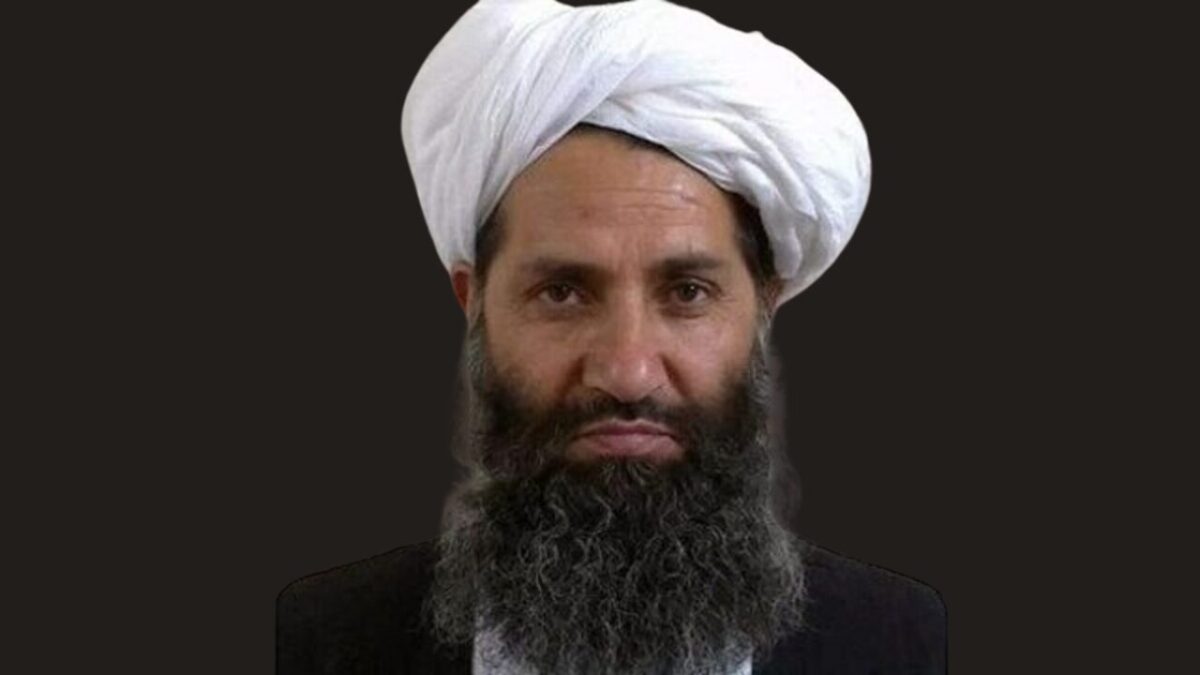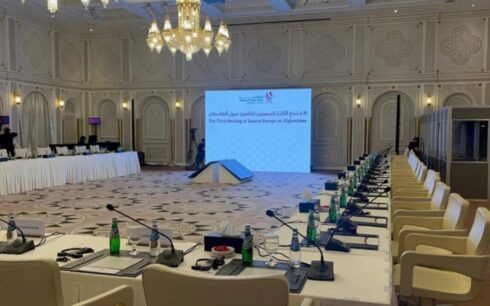KABUL, Afghanistan — Hibatullah Akhundzada, the reclusive supreme leader of the Taliban, warned during Eid al-Fitr prayers in Kandahar that disobedience to his orders could lead to the collapse of Taliban rule and plunge Afghanistan back into civil war.
In an audio message obtained by Amu and attributed to Hibatullah, he described obedience to Taliban leadership as a religious obligation and cautioned against falling prey to “foreign conspiracies.” His remarks, delivered during a significant religious occasion, underscore apparent fractures within the Taliban’s internal structure.
He said: “Look, I myself am afraid of this. Obey. This is a command of Islam… Whether you see me as the imam or not — I say this so that your responsibility is fulfilled, because it is an obligation for Muslims to support their imam so that divisions are ended and society becomes orderly. Now that society is orderly, it is necessary to support the imam,” he said.
Referring to the post-Soviet civil conflict of the 1990s, he said the absence of unified leadership had led to violence and the breakdown of order.
“If there is no obedience, one person will go one way, another will go another. In the end, you will be faced with war — just as it happened in the past. Jihad against the Russians succeeded, but when we entered into internal fighting, you saw that the main reason was the lack of leadership. There was no leader, no obedience to a leader, and feudalism began — and with it, war,” he added.
The warning came amid heightened security in Kandahar, which residents say has intensified in recent days, and amid ongoing speculation about a widening rift between Hibatullah and Interior Minister Sirajuddin Haqqani. Haqqani was absent from public view for nearly two months earlier this year, fueling rumors of discord within the Taliban’s upper ranks.
Political messaging at Eid prayers in Kabul
While Hibatullah spoke from Kandahar, Taliban officials gathered at the presidential palace in Kabul for Eid prayers. In a brief address, Abdul Ghani Baradar, deputy prime minister for economic affairs, reiterated Taliban’s readiness to engage with the international community.
“We are prepared for engagement with the world, but it must be based on mutual respect,” Baradar said.
Several political figures from the former Afghan government also released Eid messages. Former President Hamid Karzai, former peace council head Abdullah Abdullah, and former Vice President Amrullah Saleh each called for peace and national unity. Exiled President Ashraf Ghani urged Afghans to pursue responsible governance and long-term planning for a better future.
In Faryab province, large crowds gathered for Eid prayers at the Almar mosque. Attendees described the holiday as an opportunity for unity and urged Taliban officials to heed public demands and end oppressive practices.
Meanwhile, several residents in Kabul and other provinces reported mobile network outages during the early hours of Sunday, the first day of Eid. Local sources confirmed that Taliban officials had ordered the shutdowns due to security concerns, though no official statement was issued.





